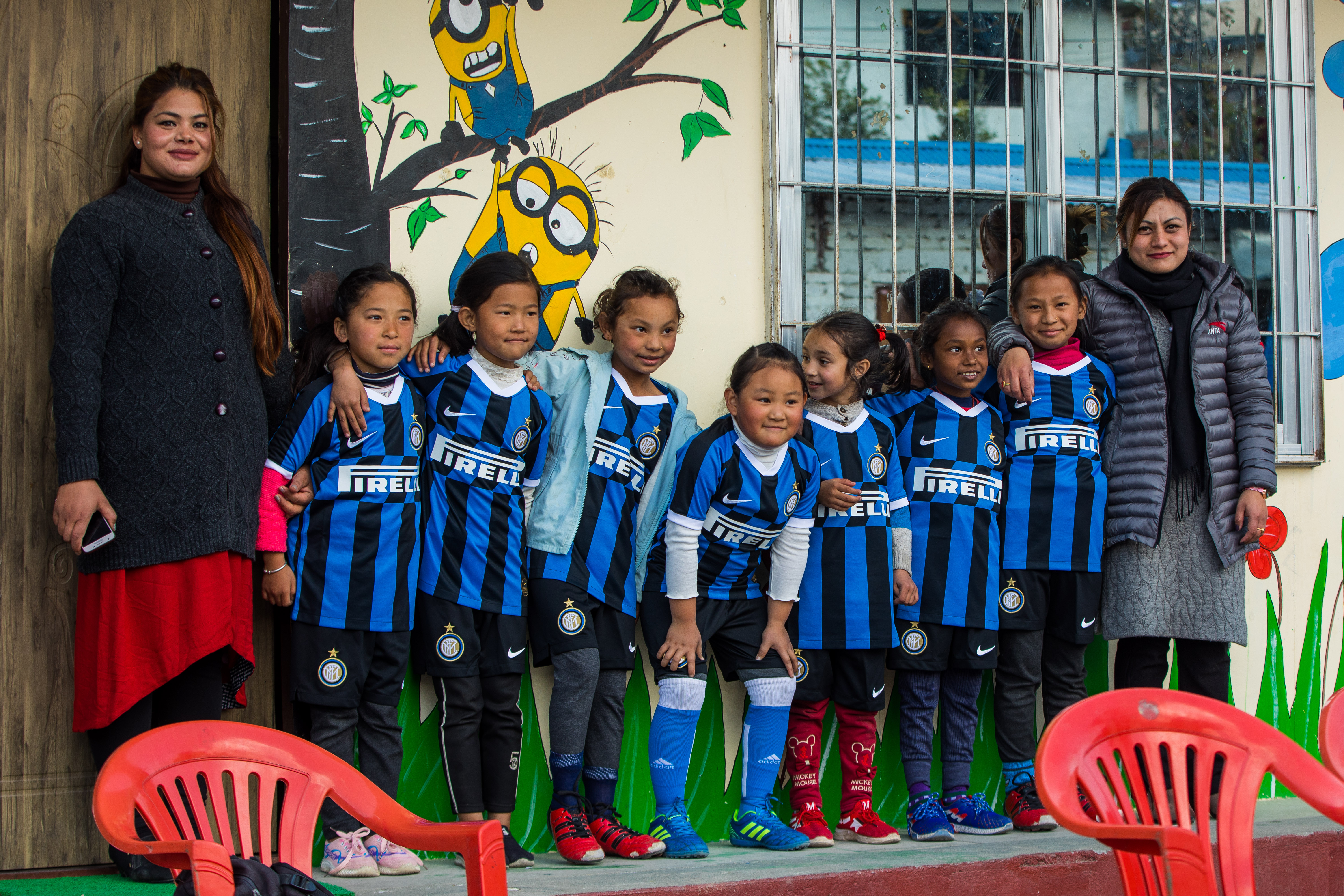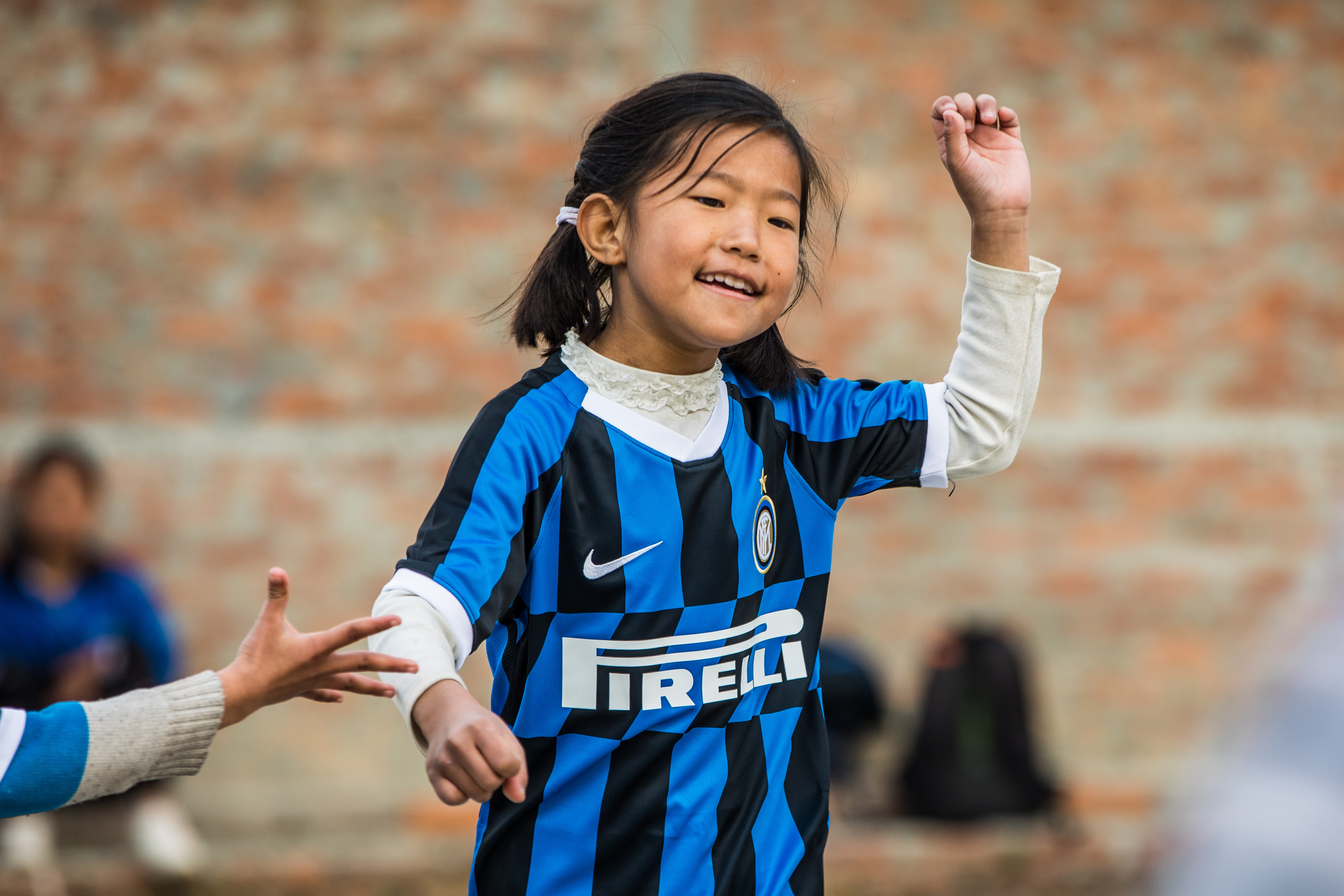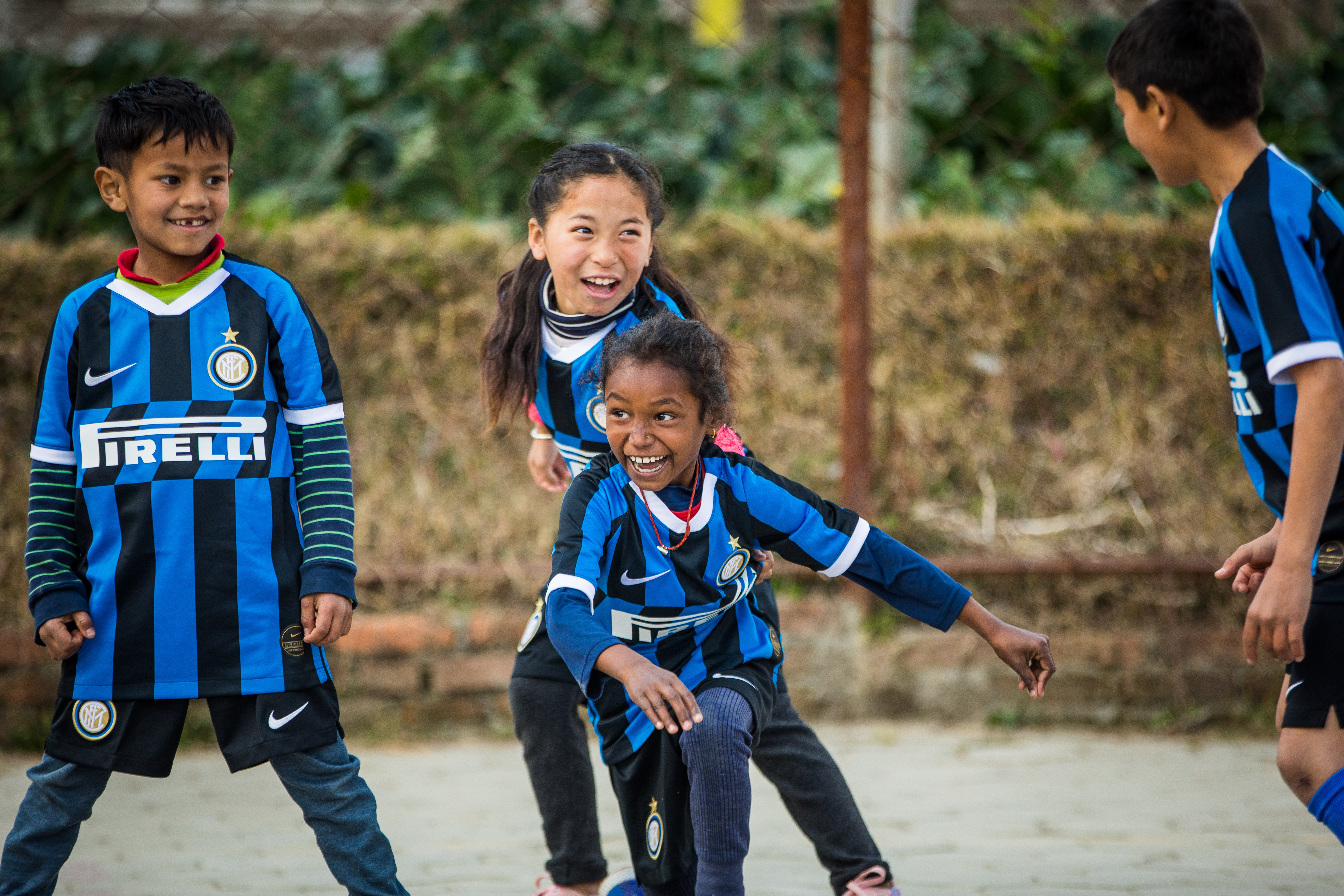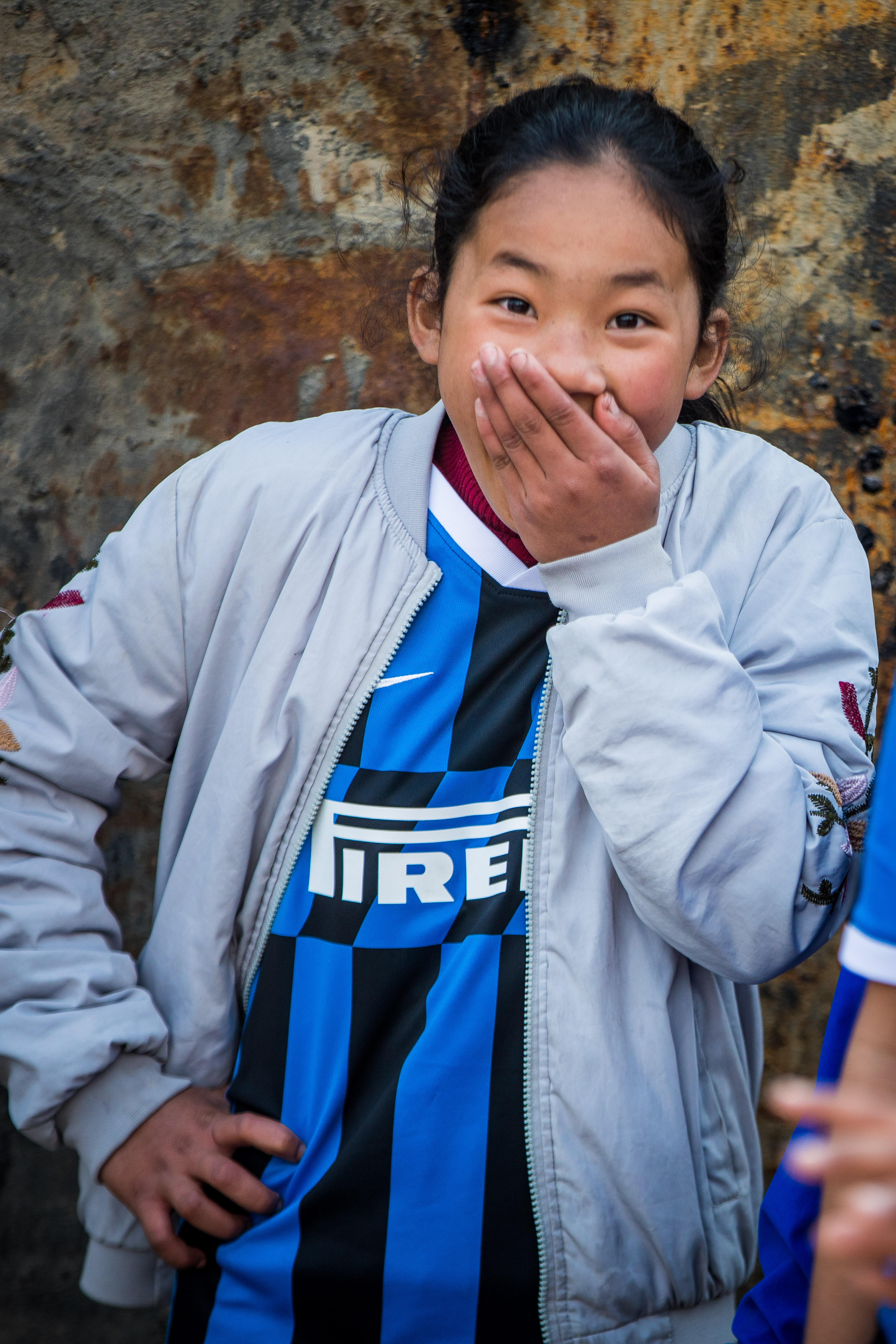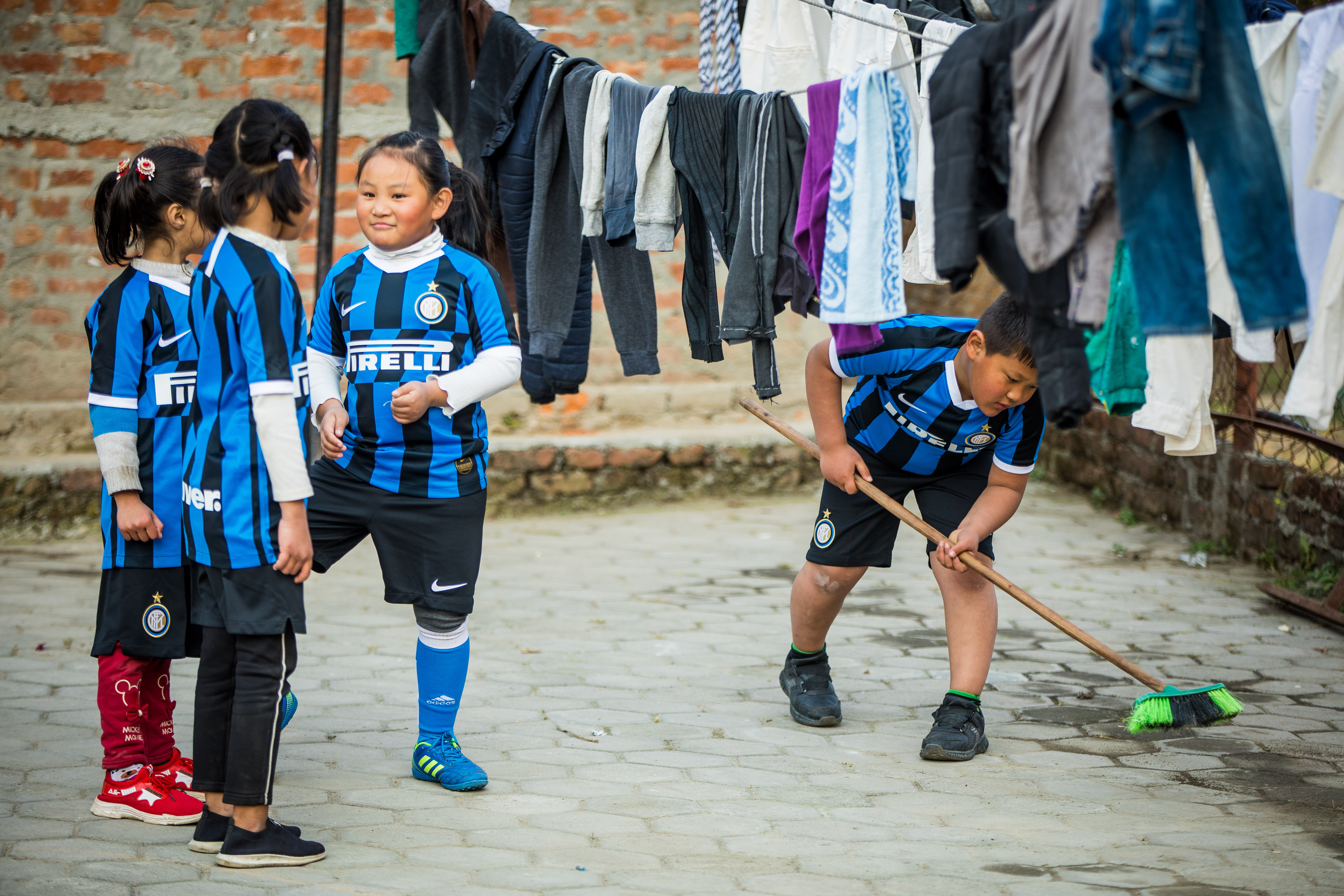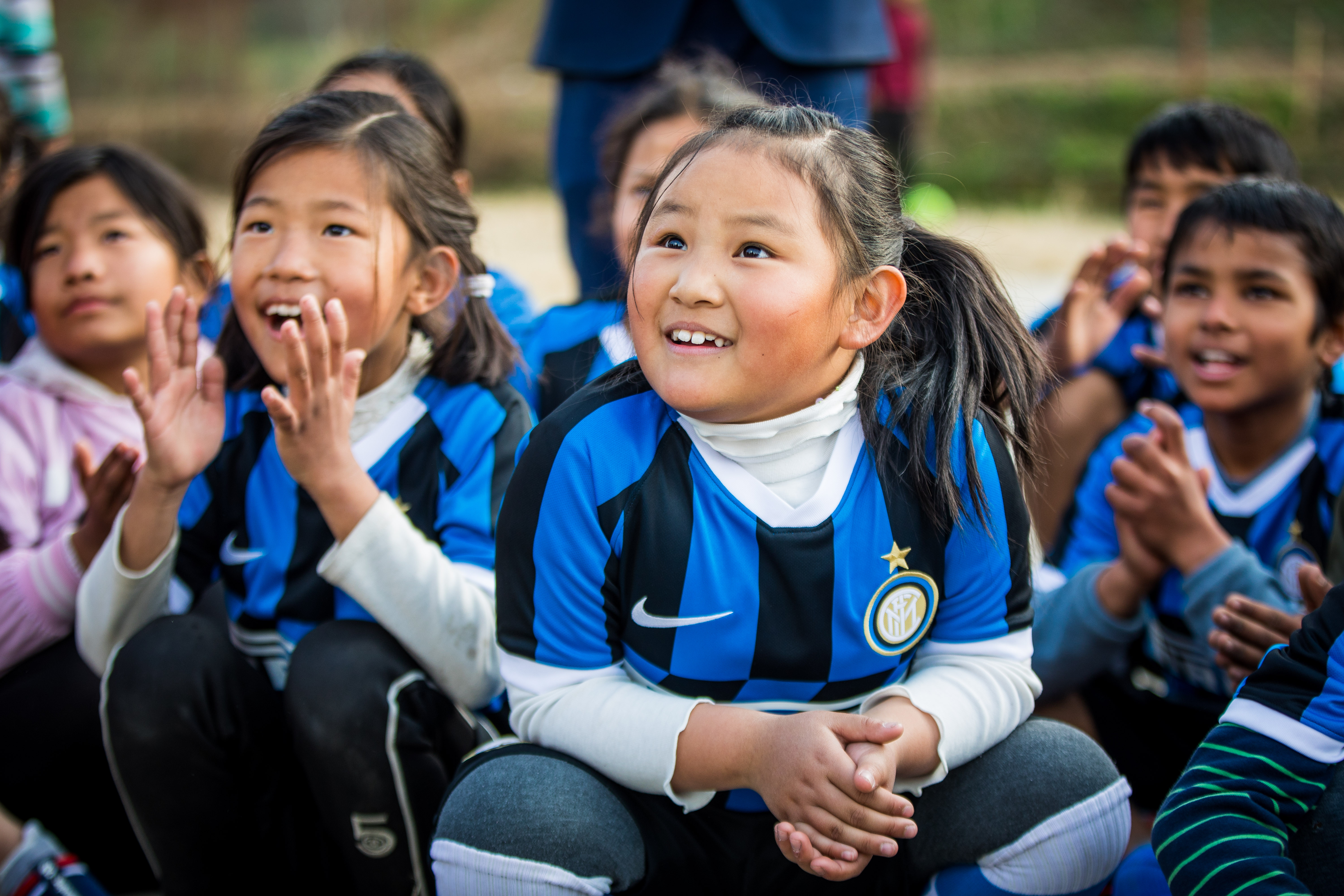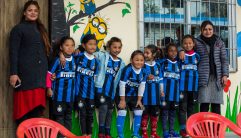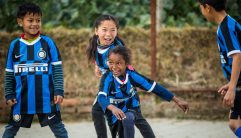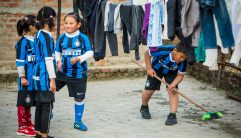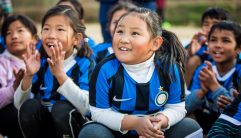Kathmandu – Gender-based stereotypes and gendered behavioural norms based on specific characteristics of each gender have always influenced the aspirations of young girls across the world, underestimating their true potential and also fostering justification for psychological abuse and mistreatment. In Nepal, an extremely patriarchal society, the female condition is even more complicated. Freedom of action and expression for young girls is considerably curtailed.
Apeiron ODV have worked for many years to help make the world a place where both men and women, girls and boys, can benefit from equal opportunities and rights. Around a year and a half ago, the meeting with Inter Campus led to the opening of the 30th Nerazzurri social project with the objective of none other than using the power of sport to combat gender-based discrimination.
Since Ozni, a seven-year-old who goes to the Beersheba elementary school, on the western border of Kathmandu, started to regularly attend training sessions with Inter Campus, it’s not just her co-ordination skills… but she has also seen her self-confidence grow massively. Her schoolteachers have also noticed this change, now that both she and her good friend Sandhya, who also takes part in the project, often ask questions in class. Ozni’s father told us that he had never thought that football could also be for women, let alone that it would interest his daughter.
In 2011 the Nepalese census on the Population and Health revealed that one in five women in Nepal between the ages of 15 and 49 has suffered at least one instance of physical violence in their lives and more than one in ten have been victims of sexual violence. According to another study from 2014, almost half of teenagers believe that women should tolerate violence to keep their families together; one out of six married women has suffered physical violence and one in three has been forced at least once to have sex with their husbands against their own will.
19.03.2021




![[RIGHT TO PLAY: NEPAL]](https://intercampus.inter.it/wp-content/uploads/2021/03/Nepal_IC_2020-115x.jpg)
